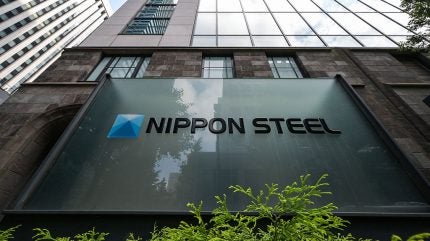
After 18 long months, Nippon Steel has finalised its $14.9bn (Y2.16trn) takeover of US Steel following an executive order from US President Donald Trump that approved the sale and secured a ‘golden share’ for the government. This share grants the government potential veto power over certain decisions.
“President Trump has secured a perpetual Golden Share as part of Nippon Steel’s acquisition of US Steel,” US Secretary of Commerce Howard Lutnick wrote in a social media post on X.

Discover B2B Marketing That Performs
Combine business intelligence and editorial excellence to reach engaged professionals across 36 leading media platforms.
He added that this would prevent certain changes from occurring without Trump’s approval (or an appointee), such as redomiciling the company outside the US, amending the $14bn of near-term investments, moving production or jobs outside of the US, or closing or idling plants ahead of given deadlines.
There are other protections regarding the location of US Steel headquarters, “employee salaries, anti-dumping pricing, raw materials and sourcing outside the US acquisitions, and more”.
The agreement also includes $11bn in new investments to be made by Nippon Steel by 2028.
The inclusion of the ‘golden share’, which is commonly used in other countries but is out of place in a US context, has raised eyebrows amongst foreign investors.

US Tariffs are shifting - will you react or anticipate?
Don’t let policy changes catch you off guard. Stay proactive with real-time data and expert analysis.
By GlobalData“It leads to the question of, ‘Am I going to get what I bought?’ Do I actually get control of this asset?”, national security lawyer at the firm Wilson Sonsini Joshua Gruenspecht told Reuters.
The deal comes weeks after an obscure amendment in the President’s ‘One Big Beautiful Bill’ alerted Wall Street. Section 889 would enable the government to retaliate against countries that it considers to have unfair trade practices by targeting foreign investments in the US that originate from these locations.
Ahead of the ‘golden share’ agreement, both companies had already agreed to some government oversight in previous negotiations. In September 2024, Reuters reviewed a national security agreement term sheet where Nippon Steel committed to most of US Steel board members being American, referring to them as “independent US Directors”, which would be approved by the Committee on Foreign Investment in the United States (CFIUS).
It makes the inclusion of the ‘golden share’ more unusual, particularly given that the investment is coming from Japan, a close US ally.
The finalisation of the deal also means Nippon Steel will not have to pay the $565m in breakup fees it would have owed if the sale had not gone through.
Caught in the political headwinds
Over the past year and a half, the Nippon Steel takeover deal has been caught in the middle of the US’ political and economic headwinds. The latest of these has been the tariff turmoil. After Trump imposed a 50% tariff on foreign steel, the case for Nippon Steel to complete the takeover strengthened, as the US market would have become a lot more expensive for the company otherwise. It also reinforced the importance of US steel receiving critical investments. The company had warned that if the deal did not go through, it would have to shut down some of its factories.
Before the tariffs, the deal became a politically contentious issue during the US election cycle. US Steel is headquartered in Pennsylvania, a swing state, and the company’s union opposed the deal. Both presidential candidates at the time (Vice-President Kamala Harris and Trump) were highly critical and in opposition to the proposed takeover.
A few weeks before Trump’s inauguration, Biden blocked the deal following a CFIUS review, which failed to reach a decision on whether the takeover posed a national security threat. Both companies sued the administration, claiming that Biden had blocked the deal for political gain with trade unions.





